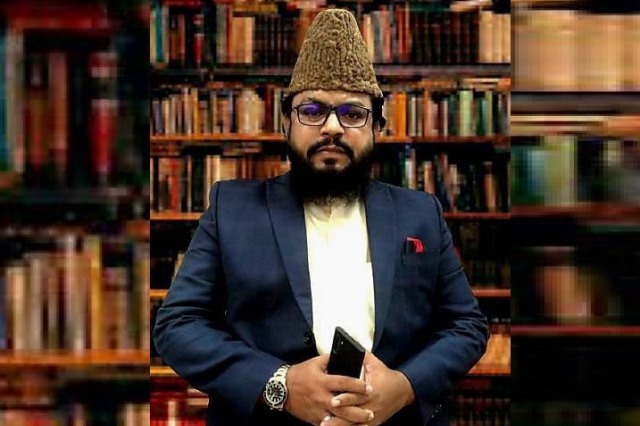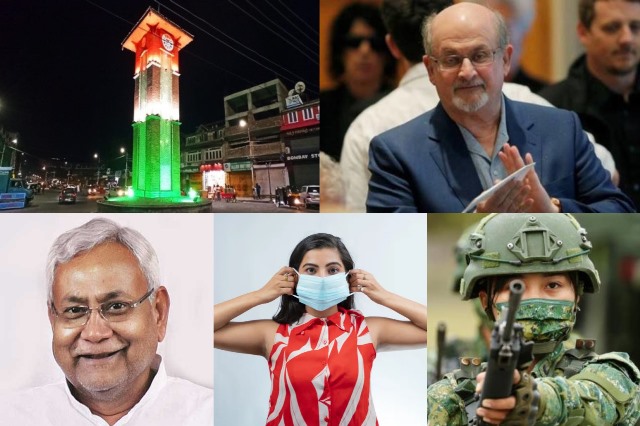Tricolour in every home is a good campaign
In the majority of nations around the world, the national flag is an object of pride that is revered, adored, and held with respect. In large democracies such as the USA, the national flag can be displayed and adorned by citizens in almost any way they want to. Sometimes this has led to controversy. There have been instances where the flag has been used in clothing (such as in bikinis or T-shirts) or in art form that have been construed as being disrespectful.
But then, the right to freedom of expression in American society can lead to ludicrous interpretations of what you can do or say and get away with. In most nations, however, the flag is treated with reverence. In many European nations, the national flag is hoisted multiple times during a year: to celebrate events that can range from religious events to birth anniversaries of national icons and other momentous historical events.
In India, till relatively recently (2002, to be precise), there were restrictions on how the national flag could be hoisted and by whom as well as even the material that it could be made of. The new Flag Code of India did away with it. Now there are no restrictions on members of the general public or institutions from hoisting the national flag as long as it is not perceived to be desecrated or disrespected in any manner.
Recently, under the aegis of the central government and espoused by Prime Minister Narendra Modi, India has launched a campaign to mark the 75th anniversary of the country’s Independence. Under the campaign citizens have been urged to hoist the national flag at their homes in the run-up to Independence Day on August 15. The campaign, entitled Har Ghar Tiranga, is aimed at invoking the spirit of patriotism among Indians. The effort should be lauded.
In recent times, Indian society has become divisive and extremely polarised.The federal structure of governance in India means that there are two levels of government: one at the central level and the other at the level of the states. The uniqueness of the Indian federal model is the extremely diverse nature of its population and the regional disparities. Language, customs, clothing, food, culture and so many other things are so different between regions that each state in India could easily be considered as a different country.
Then, there is the diversity of religion. While Hindus make up 1.094 billion of the 1.4 billion Indians, if you take the minority communities, in absolute numbers their population is huge.For instance, there are an estimated 204 million Muslims in India. Just for contextual purposes, consider that Russia’s population is 144 million; Germany’s 83.2million; and the UK’s 67.2 million. The fact that the once-latent Hindu majoritarianism has been fanned up of late to become increasingly overt has further sharpened the divisiveness in Indian society.
In that context, a campaign to revere, celebrate, and respect Indian Tiranga should be welcomed. It could be one way of uniting and bringing together a diverse, multicultural, and often conflicting population. Yes, you could say that it is only symbolic to hoist the tricolour at home but the spirit of patriotism can be one that brings together a sharply diverse society.
A heinous attack on Salman Rushdie
The India-born author Salman Rushdie, 75, was stabbed during an event in New York state last week during an event and had to be hospitalised. Rushdie’s agent said he was on a ventilator and wasn’t able to speak. The author could even lose an eye.
Ever since Rushdie wrote The Satanic Verses, published in 1988, he has been facing death threats from Islamic fundamentalists. It began with the Iranian leader Ayatollah Khomeini placing a fatwa on him calling for his assassination. Rushdie’s book had portrayed the Prophet Mohammed in a fictionalised version and his interpretation of the Koran had incensed Islamic communities.
Following the fatwa and threat to his life, Rushdie had to spend years in hiding and was granted protection by authorities in the UK and the US.
Last week, a 24-year-old man, identified as Hadi Matar, stabbed Rushdie as he was about to begin a lecture at a literary event. Matar was arrested. Rushdie is still in hospital and has suffered injuries to his neck and abdomen.
The enigma of Nitish Kumar
If you look at the career of Bihar chief minister Nitish Kumar, two things can emerge. First, is his longevity in that office. He first became chief minister of the state in 2000 for a short while. Then, he held the office between 2005 and 2014. And, following the elections in 2015, he has been chief minister of the state since that year.
The second thing to note about Nitish Kumar is his quick political crossovers. Since 2003, Kumar has been leading the Janata Dal (United). But it is his changing alignments that are notable. Between 2003 and 2013, Kumar aligned with the Bharatiya Janata Party-led National Democratic Alliance (NDA). Then he left the alliance and opposed it till 2017 when he again rejoined it. Now, in 2022, he has decided to quit the NDA and join the Mahagathbandhan, an alliance of opposition parties that include Rashtriya Janata Dal (RJD), Janata Dal (United), Indian National Congress (INC), and Left parties including Communist Party of India (CPI), Communist Party of India (Marxist–Leninist) Liberation-CPIML(Liberation) and Communist Party of India (Marxist) (CPIM).
As leader of the Mahagathbandhan, which is in opposition to the NDA, Kumar continues as the chief minister of Bihar and the RJD’s Tejashwi Yadav is the deputy chief minister. Incidentally, RJD was Kumar’s arch rival only till recently.
The political implication of Kumar’s newest realignment is a bit complex. The next Bihar state assembly elections are scheduled for 2025 so that is not an immediate event. However, there is much speculation about whether Kumar’s recent decision to move away from the NDA is a precursor to a possible plan to pitch himself as a prime ministerial candidate against Narendra Modi when the parliamentary elections are held in 2024. Kumar’s camp denies this but with Kumar’s enigmatic political career, the speculation continues.
Why mandatory masks in Delhi is a good thing
Last week the Delhi government mandated that masks should be worn in public spaces by everyone once again asCovid cases began to rise in the city. It is a welcome move that ought to be adopted by the authorities in other populous Indian cities.
The several waves of the Covid pandemic that has hit India have revealed a behavioural pattern that is unmistakable. Every time Covid’s spread ebbs, people get back to their old ways, disregarding the precautions of masking or hand hygiene.
India’s population density, particularly in its large cities, does not afford its citizens the luxury of taking it easy every time the virus’ spread slows down. It is quite clear that the Covid virus is continuing to mutate and new variants are emerging constantly. According to esports, the current variant, albeit milder than the dreaded Delta variant, is the BA.2.75 strain. This strain is believed to be causing the ongoing surge in Covid cases in the National Capital Region (NCR).
In this context, the Delhi government’s move is one that should be emulated elsewhere.
Will China invade Taiwan? The answer is not unambiguous
The recent surge in Chinese fire drills and continuing incursions by fighter jets and warships into Taiwan’s neighbourhood have given rise to speculation over a possible invasion of Taiwan by China in the near future.
The ongoing tension escalated after the visit to Taiwan by Nancy Pelosi, speaker in the US House of Representatives. China does not recognise Taiwan and aggression towards the island nation has been continuing for years. But will the hostilities lead to an all-out military strike?
That question does not have an easy answer. For one, China has over the past couple of decades built up its military might like never before. Also, its economic strength is at a significantly high level, driven mainly by its manufacturing sector that dominates the globe.
However, will China risk triggering a worldwide conflict by attacking Taiwan? The consequences of doing that can have both geo-political and economic implications for China that may not be altogether desirable. Experts are divided on China’s next moves and the speculation continues.

